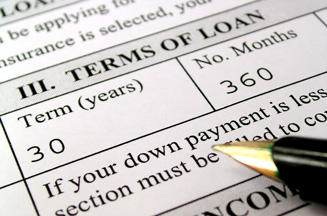
In this current economic climate, there are the haves and the have-nots. Those with the smiles on their faces are the former, on base-rate tracker mortgages, while the latter are looking glum, desperately searching for ways to buy a property as the banks close down avenues of credit.
From the end of 2007, when house prices started to fall and the realisation that the UK was not protected from the effects of the US sub-prime debacle set in, the mortgage market changed radically. With UK banks crumbling under bad debts, propped up by the government and short of cash to lend, mortgage offers started to evaporate.
So while only a couple of years ago banks were bending over backward to offer mortgages up to five times the buyer's salary, now first-time buyers are struggling to find deals, even if they can put down a significant deposit.
According to Halifax, house prices tumbled by 16% in 2008, while gross mortgage lending fell by 29%. To what degree the government's policies - such as quantitative easing and bailing out the banks - will increase lending is not clear, but 2009 will remain challenging for providers.
At the height of the property boom in the fourth quarter of 2006, there were 445,000 house sales in the UK, but this had dropped to 188,000 by the third quarter of 2008 - a 58% fall. At the same time, repossessions increased 54% to 40,000 last year.
Despite the recent ups and downs of the housing market, we remain wedded to home-owner-ship. The total amount of mortgage debt has more than doubled since 2000, increasing from £536bn to £1.2tn in 2008, according to Mintel.
Fixed-rate mortgages had been growing in popularity because they remove uncertainty. Almost a third of people were on a fixed-rate deal in 2004, rising to half in 2008, according to TGI. However, the drop in the base rate at the end of last year meant more homeowners became interested in switching to variable-rate mortgages, especially trackers, to benefit from lower repayments.
But as the base rate has plummeted, the best tracker deals have been removed, and many people looking to remortgage have few options beyond their lenders' standard variable rates.
Intermediaries were also badly affected as fewer mortgages were available for them to sift through, and lenders focused on direct channels to reduce costs. Their share of the market dropped to about 60% in 2008, compared with 70% in 2007.
In terms of share, the top 10 lenders account for more than three-quarters of the market, with HBOS taking 20% - or £73bn - of gross advances in 2007, according to the CML Yearbook 2008. As the market has been shaken up, specialist lenders have dropped out, meaning the big banks have increased their collective share of the market.
Northern Rock, third in the table and now state-owned, has said it will revive its mortgage business with up to £14bn in new loans by 2011. Lloyds Banking Group and RBS have made similar pledges, all aimed at getting the mortgage market moving again.
The banking crisis has led the Financial Services Authority to call for tougher rules on lending, which may include a ban on 100%-plus mortgages and setting a maximum borrowing of three times a buyer's salary.
However, there is evidence of a pent-up demand, especially as house prices fall, so when mortgages are more readily available again the market should pick up. By 2010 conditions are predicted to improve. According to Mintel, by 2012 gross mortgage advances should be up 23%, compared with 2009, to £178bn, although this is still well down on 2007's historic rates.

